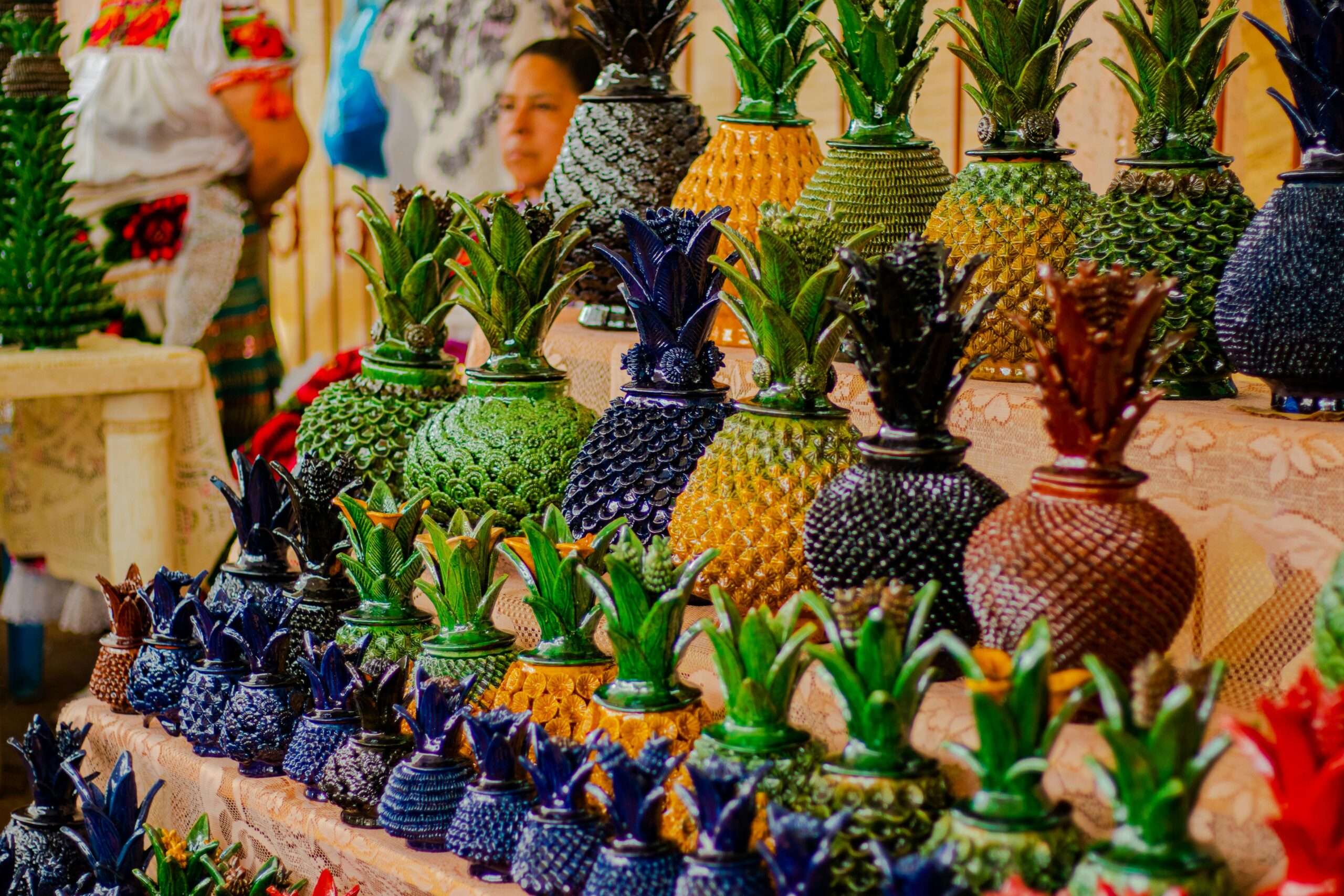Ethical trade practices are reshaping how communities preserve cultural heritage while building sustainable livelihoods. This intersection of tradition and commerce offers a pathway to economic empowerment without cultural erosion.
🌍 The Cultural Crisis in Global Markets
Traditional communities worldwide face an unprecedented challenge: how to participate in the global economy without sacrificing the cultural practices that define their identity. Indigenous artisans, textile weavers, traditional farmers, and craft communities struggle to compete with mass-produced alternatives that flood international markets at impossibly low prices.
The consequences of this imbalance extend far beyond economics. When traditional crafts become economically unviable, knowledge accumulated over generations disappears. Master artisans cannot pass their skills to younger generations who seek more profitable employment. Cultural practices that once defined communities fade into historical footnotes.
Fair trade and ethical commerce present a compelling alternative. By ensuring producers receive fair compensation, these practices create economic incentives for cultural preservation. When traditional skills generate sustainable income, communities can maintain their heritage while meeting modern economic needs.
Understanding Ethical Trade Beyond Fair Prices
Ethical trade encompasses more than paying fair prices for products. It represents a comprehensive approach to commerce that prioritizes human dignity, environmental sustainability, and cultural preservation alongside economic exchange.
At its core, ethical trade recognizes that every product carries a story. A handwoven textile embodies not just labor hours but centuries of accumulated knowledge, cultural symbolism, and community identity. Traditional agricultural products represent adapted farming practices that preserve biodiversity and environmental health.
The Pillars of Ethical Trade Practices
Several fundamental principles distinguish ethical trade from conventional commerce. Fair compensation ensures producers earn living wages that reflect the true value of their work and skills. Transparent supply chains allow consumers to understand exactly who created their products and under what conditions.
Long-term relationships between producers and buyers create stability that allows communities to plan for the future. Environmental sustainability ensures production methods don’t compromise the natural resources future generations will need. Cultural respect means recognizing traditional knowledge as valuable intellectual property deserving protection and compensation.
🎨 Traditional Crafts: Where Culture Meets Commerce
Artisan communities represent some of the most visible beneficiaries of ethical trade practices. From Peruvian textile weavers to Indian block printers, traditional craftspeople maintain techniques that have evolved over centuries.
Consider the situation of indigenous weavers in Guatemala. Their traditional textiles incorporate complex patterns that identify specific communities and carry deep cultural significance. Each color, symbol, and pattern tells stories passed down through generations. Yet machine-made imitations flood tourist markets at a fraction of the price authentic pieces command.
Ethical trade partnerships allow these artisans to access international markets while receiving prices that reflect their skill and cultural knowledge. Fair trade organizations provide marketing support, quality control assistance, and direct connections to consumers who value authenticity and cultural preservation.
Reviving Endangered Craft Traditions
Numerous craft traditions were on the brink of extinction before ethical trade created viable markets. Japanese indigo dyeing, Mexican amate bark paper production, and Ethiopian handweaving all experienced revivals when fair trade partnerships demonstrated their economic potential.
These revivals generate ripple effects throughout communities. Young people who might have migrated to cities for employment can now earn comparable incomes while learning traditional skills. Master craftspeople gain recognition and respect for knowledge previously dismissed as economically irrelevant. Communities maintain social cohesion as traditional practices continue connecting generations.
Agricultural Heritage and Food Sovereignty
Traditional agricultural practices represent another crucial intersection of culture and commerce. Indigenous farming methods often preserve crop varieties, maintain soil health, and support biodiversity in ways industrial agriculture cannot replicate.
Fair trade certification for coffee, cocoa, tea, and other agricultural products helps farming communities maintain traditional practices while accessing premium markets. These partnerships recognize that traditional farming knowledge has intrinsic value beyond simple commodity production.
Protecting Crop Diversity Through Market Access
Industrial agriculture prioritizes uniform crops that facilitate mechanized production and long-distance transport. This approach has dramatically reduced crop diversity, making food systems vulnerable to disease and climate change.
Traditional farmers often maintain dozens of crop varieties adapted to local conditions and cultural preferences. Ethical trade creates markets for these heritage varieties, providing economic incentives for preservation. When consumers pay premium prices for heirloom tomatoes, ancient grain varieties, or indigenous pepper species, they support agricultural biodiversity and food security.
💡 Empowerment Through Economic Justice
Beyond preserving cultural practices, ethical trade fundamentally reshapes power dynamics in global commerce. Traditional models concentrate power with buyers and middlemen, leaving producers with minimal leverage to negotiate fair terms.
Fair trade cooperatives and ethical partnerships strengthen producer organizations, enabling collective bargaining and direct market access. This structural change means communities can invest in education, healthcare, and infrastructure rather than simply surviving at subsistence levels.
Women’s Empowerment and Cultural Change
Women comprise a significant proportion of artisans and small-scale farmers in developing regions. Ethical trade initiatives often specifically target women producers, recognizing both their economic vulnerability and their crucial role in cultural transmission.
When women control income from their traditional skills, they gain household decision-making power and community influence. This economic empowerment often correlates with improved education for children, better nutrition, and enhanced community health outcomes. Women become agents of positive cultural evolution rather than victims of economic marginalization.
Challenges in Scaling Ethical Trade
Despite its benefits, ethical trade faces significant obstacles to expansion. Certification costs can be prohibitive for small producer organizations. Complex international supply chains make transparency difficult to achieve and verify. Consumer demand remains concentrated in wealthy markets, limiting reach.
Quality consistency presents ongoing challenges when working with diverse producer groups using traditional methods. What consumers appreciate as authentic variation, retailers sometimes view as problematic inconsistency. Balancing authenticity with market expectations requires ongoing negotiation and education.
The Authenticity Paradox
As ethical trade grows, maintaining authenticity becomes increasingly complex. Market success sometimes encourages producers to modify traditional designs for foreign tastes, potentially diluting cultural significance. Distinguishing between genuine cultural evolution and market-driven cultural erosion requires sensitivity and ongoing dialogue.
Some communities face pressure to “perform” tradition for consumer expectations rather than allowing their cultural practices to evolve naturally. Finding balance between market viability and cultural integrity remains an ongoing challenge for ethical trade practitioners.
🌱 Environmental Sustainability and Cultural Practices
Traditional communities often maintain practices that modern sustainability science is only beginning to appreciate. Indigenous forest management, traditional water conservation, and time-tested agricultural techniques frequently outperform supposedly advanced alternatives in long-term environmental outcomes.
Ethical trade recognizes this environmental knowledge as valuable and compensates communities for maintaining practices that benefit broader ecological systems. When indigenous communities receive fair compensation for sustainably harvested forest products, they can resist pressures to clear land for short-term economic gain.
Climate Change and Traditional Knowledge
As climate change accelerates, traditional ecological knowledge becomes increasingly valuable. Communities that have adapted to environmental variability over centuries possess insights that could prove crucial for climate resilience.
Ethical trade partnerships that value this knowledge create incentives for preservation and application. When traditional weather prediction, water management, or crop adaptation techniques generate income, communities maintain and develop this knowledge rather than abandoning it for industrial alternatives.
Technology’s Role in Ethical Trade Expansion
Digital platforms and blockchain technology are transforming ethical trade’s scalability. Online marketplaces connect producers directly with consumers worldwide, eliminating exploitative middlemen. Social media allows artisans to share their stories, building personal connections with customers.
Blockchain technology enables unprecedented supply chain transparency. Consumers can verify that products genuinely originate from claimed sources and that promised payments reach producers. This verification builds trust and justifies premium prices.
Balancing Digital Access and Traditional Practice
Technology adoption presents both opportunities and risks for traditional communities. While digital tools expand market access, they can also accelerate cultural change and create new dependencies. Finding appropriate technological integration requires careful consideration of community values and long-term goals.
Some communities successfully blend traditional practices with modern commerce tools, using smartphones to photograph traditional textiles for online sales while maintaining traditional production methods. Others prefer working through intermediary organizations that handle digital interfaces while producers focus on craft.
🤝 Building Meaningful Consumer Connections
Ethical trade’s success ultimately depends on consumers willing to pay premium prices for products that support cultural preservation. Building these connections requires storytelling that helps consumers understand the human and cultural dimensions of their purchases.
Effective ethical trade organizations share producer stories, explain cultural significance, and demonstrate impact. When consumers understand that their purchase preserves an endangered craft tradition or supports a farming community’s children attending school, products acquire meaning beyond their functional utility.
Moving Beyond Charity Narratives
Early fair trade marketing sometimes relied on charitable appeals that positioned producers as helpless victims requiring rescue. Contemporary approaches emphasize producer expertise, cultural richness, and the mutual benefits of ethical exchange.
This shift recognizes that consumers aren’t doing producers favors by purchasing their goods. Instead, producers offer consumers access to authentic cultural products, traditional knowledge, and the satisfaction of supporting just commerce. This reframing creates more dignified and sustainable relationships.
Policy Frameworks Supporting Ethical Trade
Government policies and international agreements increasingly recognize ethical trade’s importance. Geographic indication protections, similar to those preserving Champagne or Parmigiano-Reggiano, now protect traditional products from developing countries. These legal frameworks prevent cultural appropriation and ensure communities benefit from their cultural heritage.
Trade agreements that include labor and environmental standards create baseline protections that complement ethical trade initiatives. While not substitutes for voluntary ethical trade practices, these policy frameworks establish minimal standards and create space for higher-ambition voluntary initiatives.
✨ The Future of Culture and Commerce
As global awareness of cultural preservation and economic justice grows, ethical trade will likely expand and evolve. Younger consumers increasingly prioritize purpose-driven purchases, creating growing markets for products that support cultural sustainability.
Climate change and environmental degradation may accelerate appreciation for traditional ecological knowledge, increasing demand for products produced using time-tested sustainable methods. This convergence of cultural, environmental, and economic values could drive ethical trade from niche market to mainstream practice.
Technology will continue transforming how producers connect with consumers and verify ethical claims. Artificial intelligence might help match traditional products with ideal markets, while virtual reality could let consumers virtually visit producer communities, deepening understanding and connection.

Creating Your Impact Through Conscious Consumption
Individual consumers can support cultural preservation through purchasing decisions. Seeking certified fair trade products, buying directly from artisan cooperatives, and researching company supply chain practices all contribute to ethical commerce growth.
Beyond purchasing, consumers can advocate for policy changes, support organizations working with traditional communities, and educate others about connections between commerce and culture. Every conversation about why you chose a particular product helps build awareness and market demand for ethical alternatives.
The relationship between culture and commerce need not be exploitative. When structured around principles of fairness, transparency, and respect, trade can become a powerful force for cultural preservation and community empowerment. Ethical trade demonstrates that economic development and cultural sustainability are not opposing forces but can be mutually reinforcing goals.
As we navigate an increasingly interconnected world, supporting traditional communities through conscious commerce becomes both opportunity and responsibility. The choices we make as consumers shape whether diverse cultural traditions survive and thrive or disappear under economic pressures. By choosing ethical trade, we vote for a world where cultural diversity remains vibrant and communities control their own economic destinies.
Toni Santos is a global-policy researcher and ethical-innovation writer exploring how business, society and governance interconnect in the age of interdependence. Through his studies on corporate responsibility, fair trade economics and social impact strategies, Toni examines how equitable systems emerge from design, policy and shared vision. Passionate about systemic change, impact-driven leadership and transformative policy, Toni focuses on how global cooperation and meaningful economy can shift the scenario of globalization toward fairness and purpose. His work highlights the intersection of economics, ethics and innovation — guiding readers toward building structures that serve people and planet. Blending policy design, social strategy and ethical economy, Toni writes about the architecture of global systems — helping readers understand how responsibility, trade and impact intertwine in the world they inhabit. His work is a tribute to: The global commitment to equity, justice and shared prosperity The architecture of policy, business and social impact in a connected world The vision of globalization as cooperative, human-centred and regenerative Whether you are a strategist, policymaker or global thinker, Toni Santos invites you to explore ethical globalization — one policy, one model, one impact at a time.




